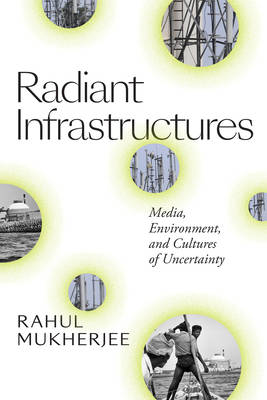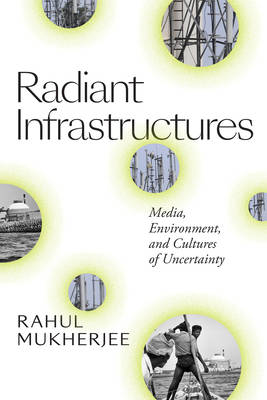
- Afhalen na 1 uur in een winkel met voorraad
- Gratis thuislevering in België vanaf € 30
- Ruim aanbod met 7 miljoen producten
- Afhalen na 1 uur in een winkel met voorraad
- Gratis thuislevering in België vanaf € 30
- Ruim aanbod met 7 miljoen producten
Zoeken
€ 56,45
+ 112 punten
Omschrijving
In Radiant Infrastructures Rahul Mukherjee explores how the media coverage of nuclear power plants and cellular phone antennas in India--what he calls radiant infrastructures--creates environmental publics: groups of activists, scientists, and policy makers who use media to influence public opinion. In documentaries, lifestyle television shows, newspapers, and Bollywood films, and through other forms of media (including radiation-sensing technologies), these publics articulate contesting views about the relationships between modernity, wireless signals, and nuclear power. From testimonies of cancer patients who live close to cell towers to power plant operators working to contain information about radiation leaks and health risks, discussions in the media show how radiant infrastructures are at once harbingers of optimism about India's development and emitters of potentially carcinogenic radiation. In tracing these dynamics, Mukherjee expands understandings of the relationship between media and infrastructure and how people make sense of their everyday encounters with technology and the environment.
Specificaties
Betrokkenen
- Auteur(s):
- Uitgeverij:
Inhoud
- Aantal bladzijden:
- 288
- Taal:
- Engels
- Reeks:
Eigenschappen
- Productcode (EAN):
- 9781478008064
- Verschijningsdatum:
- 27/03/2020
- Uitvoering:
- Paperback
- Formaat:
- Trade paperback (VS)
- Afmetingen:
- 152 mm x 229 mm
- Gewicht:
- 385 g

Alleen bij Standaard Boekhandel
+ 112 punten op je klantenkaart van Standaard Boekhandel
Beoordelingen
We publiceren alleen reviews die voldoen aan de voorwaarden voor reviews. Bekijk onze voorwaarden voor reviews.











